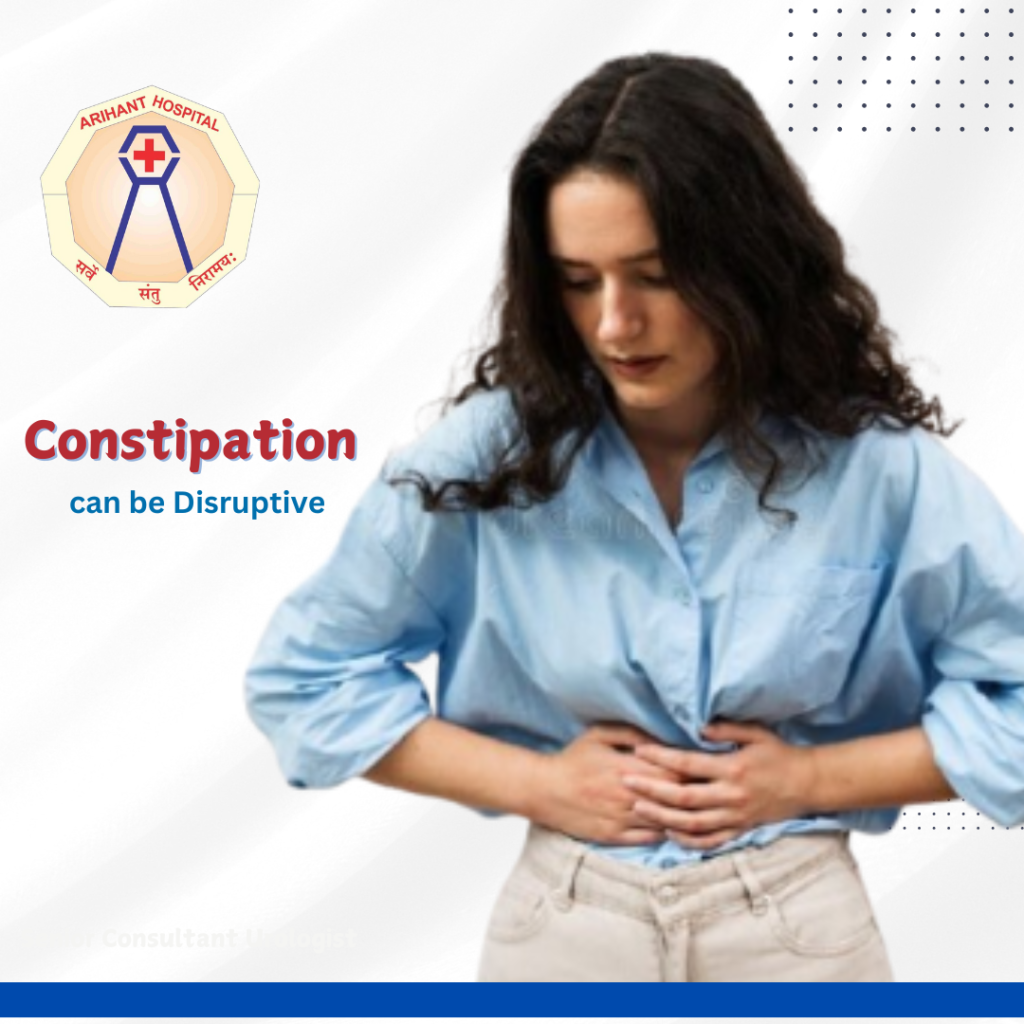Constipation is a common digestive issue that affects millions of people worldwide. It occurs when bowel movements become infrequent, difficult, or painful. While occasional constipation is normal, chronic constipation can indicate an underlying health issue that requires medical attention. Consulting the Best Gastroenterologist in Nashik can help diagnose and treat the condition effectively. Understanding constipation: Learn about its causes, symptoms, and treatments to maintain digestive health and improve bowel regularity.
What is Constipation?
Constipation is defined as having fewer than three bowel movements per week. The stool may be hard, dry, and difficult to pass, leading to discomfort and bloating. While constipation is not usually a serious condition, persistent symptoms can affect quality of life and may require medical intervention.
Common Causes of Constipation
Several factors contribute to constipation, including lifestyle habits, diet, and medical conditions.
1. Low Fiber Intake
A diet low in fiber can slow digestion and make stool harder to pass. Fiber adds bulk to the stool and helps maintain regular bowel movements.
2. Dehydration
Not drinking enough water can lead to dry and hard stool, making it difficult to pass. Proper hydration is essential for smooth digestion.
3. Lack of Physical Activity
A sedentary lifestyle can slow down digestion and lead to constipation. Regular exercise stimulates bowel movements and improves gut health.
4. Ignoring the Urge to Defecate
Delaying a bowel movement can cause stool to become dry and harder to pass. Over time, this can contribute to chronic constipation.
5. Certain Medications
Some medications, including pain relievers, antidepressants, and antacids containing calcium or aluminum, can cause constipation as a side effect.
6. Medical Conditions
Conditions like irritable bowel syndrome (IBS), hypothyroidism, diabetes, and neurological disorders can affect bowel function and lead to constipation.
7. Stress and Anxiety
Emotional stress and anxiety can disrupt digestion and slow down bowel movements, increasing the risk of constipation.
Symptoms of Constipation
The symptoms of constipation vary from person to person, but common signs include:
- Infrequent bowel movements (less than three times a week)
- Hard, dry, or lumpy stool
- Straining during bowel movements
- A feeling of incomplete evacuation
- Abdominal discomfort or bloating
- Loss of appetite
- Feeling sluggish or fatigued
If you experience chronic constipation, it’s important to seek medical advice from the Best Gastroenterologist in Nashik to rule out any underlying conditions.
When to See a Doctor
While occasional constipation is not a cause for concern, you should seek medical attention if you experience:
- Constipation lasting more than three weeks
- Severe abdominal pain or bloating
- Blood in the stool
- Unexplained weight loss
- A sudden change in bowel habits
- Difficulty passing gas
Diagnosis of Constipation
A gastroenterologist will evaluate your medical history, lifestyle habits, and symptoms to determine the cause of constipation. Some diagnostic tests may include:
- Physical Examination: Checking for signs of bloating and tenderness.
- Blood Tests: To detect underlying conditions like thyroid disorders.
- Colonoscopy: To examine the colon for blockages or abnormalities.
- Stool Tests: To identify infections or digestive issues.
- Imaging Tests: X-rays or CT scans to evaluate the digestive tract.
Treatment Options for Constipation
Treatment depends on the severity and underlying cause of constipation. Lifestyle changes, medications, and medical interventions can help relieve symptoms. Understanding constipation: Learn about its causes, symptoms, and treatments to maintain digestive health and improve bowel regularity.
1. Dietary and Lifestyle Changes
- Increase Fiber Intake: Consume fiber-rich foods like fruits, vegetables, whole grains, and legumes.
- Stay Hydrated: Drink at least 8-10 glasses of water daily.
- Exercise Regularly: Physical activity helps stimulate bowel movements.
- Establish a Routine: Try to have a bowel movement at the same time each day.
- Avoid Processed Foods: Reduce consumption of fast food, refined grains, and sugary snacks.
2. Medications
If lifestyle changes are not effective, a doctor may recommend:
- Fiber Supplements: Such as psyllium or methylcellulose to soften stool.
- Stool Softeners: To make stool easier to pass.
- Laxatives: Osmotic laxatives or stimulant laxatives may be prescribed for short-term use.
- Probiotics: To improve gut health and digestion.
3. Medical Procedures
For severe cases of constipation, medical procedures may be necessary:
- Biofeedback Therapy: Helps retrain the muscles used for bowel movements.
- Enemas or Suppositories: Used to relieve acute constipation.
- Surgical Intervention: In rare cases, surgery may be needed to remove a blockage or correct an anatomical issue.
Preventing Constipation
Preventing constipation involves maintaining a healthy lifestyle:
- Eat a fiber-rich diet
- Drink plenty of water
- Exercise regularly
- Avoid delaying bowel movements
- Reduce stress through relaxation techniques like yoga and meditation
Why Consult the Best Gastroenterologist in Nashik?
If constipation is persistent and affects your daily life, consulting the Best Gastroenterologist in Nashik is crucial. A specialist can provide a proper diagnosis, personalized treatment, and guidance on managing digestive health effectively. Chronic constipation can sometimes indicate an underlying issue that requires expert medical care.
Conclusion
Constipation is a common yet manageable digestive issue. Understanding its causes, symptoms, and treatment options can help in preventing and relieving discomfort. Simple lifestyle modifications, dietary adjustments, and medical treatments can improve bowel health. If you experience chronic constipation, seeking expert advice from the Best Gastroenterologist in Nashik can help you find lasting relief and improve your quality of life.

